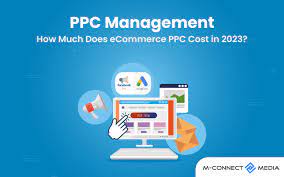Mastering Ecommerce PPC Management Strategies for Online Success
The Power of Ecommerce PPC Management
In the competitive world of ecommerce, Pay-Per-Click (PPC) advertising has become a vital tool for businesses looking to boost their online presence and drive sales. Ecommerce PPC management involves the strategic planning and execution of paid advertising campaigns to attract potential customers and increase conversions.
Benefits of Ecommerce PPC Management
Effective ecommerce PPC management offers a multitude of benefits for online retailers:
- Increased Visibility: PPC ads allow your products to appear at the top of search engine results pages, enhancing visibility and attracting more clicks.
- Targeted Advertising: With PPC, you can target specific demographics, locations, and keywords to reach your ideal audience, resulting in higher-quality leads.
- Cost-Effective Results: Pay only when users click on your ads, ensuring that your marketing budget is spent efficiently on potential customers who are actively interested in your products.
- Quick Results: Unlike organic SEO efforts that take time to yield results, PPC campaigns can generate immediate traffic and conversions for your ecommerce store.
- Data-Driven Insights: Ecommerce PPC management provides valuable data on ad performance, user behaviour, and conversion rates, allowing you to make informed decisions to optimise your campaigns.
Key Strategies for Successful Ecommerce PPC Management
To maximise the effectiveness of your ecommerce PPC campaigns, consider implementing the following strategies:
- Keyword Research: Identify relevant keywords that align with your products and target audience to improve ad targeting and visibility.
- Compelling Ad Copy: Craft engaging ad copy that highlights unique selling points and encourages users to click through to your ecommerce site.
- Landing Page Optimisation: Create dedicated landing pages that are tailored to specific ads, providing a seamless user experience and increasing conversion rates.
- A/B Testing: Experiment with different ad variations, keywords, and targeting options to identify what resonates best with your audience and drives optimal results.
- Conversion Tracking: Implement tracking tools to monitor conversions and ROI from your PPC campaigns, enabling you to refine strategies for better performance.
In Conclusion
Ecommerce PPC management is a powerful tool for online retailers seeking to enhance their digital marketing efforts and drive sales. By leveraging targeted advertising strategies, data-driven insights, and continuous optimisation techniques, businesses can achieve significant growth in their ecommerce ventures through effective PPC campaigns.
Mastering Ecommerce PPC: 7 Essential Tips for Effective Campaign Management
- 1. Conduct thorough keyword research to target relevant search terms.
- 2. Create compelling ad copy that highlights unique selling points.
- 3. Utilise ad extensions to provide additional information and increase visibility.
- 4. Monitor performance regularly and adjust bids based on data analysis.
- 5. Test different ad variations to optimise for higher click-through rates.
- 6. Implement conversion tracking to measure the effectiveness of your campaigns.
- 7. Consider remarketing strategies to target users who have previously visited your website.
1. Conduct thorough keyword research to target relevant search terms.
To maximise the success of your ecommerce PPC campaigns, it is crucial to conduct comprehensive keyword research to pinpoint and target relevant search terms. By identifying the specific keywords that align with your products and resonate with your target audience, you can enhance the effectiveness of your ads and increase visibility on search engine results pages. Strategic keyword research lays the foundation for precise ad targeting, driving quality traffic to your ecommerce site and ultimately boosting conversions.
2. Create compelling ad copy that highlights unique selling points.
To maximise the effectiveness of your ecommerce PPC campaigns, it is crucial to create compelling ad copy that emphasises your unique selling points. By crafting engaging and persuasive content that showcases what sets your products or services apart from competitors, you can capture the attention of potential customers and entice them to click on your ads. Highlighting key benefits, special offers, or exclusive features in your ad copy can help differentiate your brand in a crowded marketplace and drive higher click-through rates and conversions.
3. Utilise ad extensions to provide additional information and increase visibility.
To enhance the effectiveness of your ecommerce PPC campaigns, it is crucial to utilise ad extensions effectively. By incorporating ad extensions, you can provide potential customers with additional information such as contact details, location links, pricing, and more. This not only improves the visibility of your ads but also enriches the user experience by offering relevant details upfront. Utilising ad extensions can help differentiate your ads from competitors and increase the likelihood of capturing the attention of your target audience, ultimately driving more traffic and conversions to your ecommerce website.
4. Monitor performance regularly and adjust bids based on data analysis.
To ensure the success of your ecommerce PPC campaigns, it is crucial to monitor performance regularly and adjust bids based on data analysis. By keeping a close eye on key metrics such as click-through rates, conversion rates, and cost per acquisition, you can identify trends and opportunities for improvement. Analyzing this data allows you to make informed decisions about bid adjustments, ensuring that your budget is allocated effectively towards keywords and ads that drive the best results. Regular monitoring and bid adjustments based on data analysis are essential steps in maximising the ROI of your ecommerce PPC efforts.
5. Test different ad variations to optimise for higher click-through rates.
To enhance the performance of your ecommerce PPC campaigns, it is crucial to implement Tip 5: Test different ad variations to optimise for higher click-through rates. By experimenting with diverse ad copies, visuals, and calls-to-action, you can identify which elements resonate best with your target audience and drive increased engagement. Through continuous testing and analysis of ad variations, you can refine your strategies to maximise click-through rates and ultimately boost conversions for your online store.
6. Implement conversion tracking to measure the effectiveness of your campaigns.
Implementing conversion tracking is a crucial step in ecommerce PPC management. By setting up tracking tools, businesses can accurately measure the impact and success of their advertising campaigns. Tracking conversions allows you to gain valuable insights into which ads are driving the most profitable results, enabling you to make informed decisions on where to allocate your budget for maximum ROI. This data-driven approach not only helps in evaluating campaign performance but also empowers you to refine strategies and optimise future campaigns for better outcomes.
7. Consider remarketing strategies to target users who have previously visited your website.
When delving into ecommerce PPC management, it is essential to consider implementing remarketing strategies to target users who have previously visited your website. By retargeting these users with tailored ads based on their past interactions with your site, you can effectively re-engage them and encourage return visits or conversions. Remarketing helps reinforce brand awareness, builds trust, and increases the likelihood of converting potential customers who have already shown interest in your products or services. This targeted approach can significantly enhance the effectiveness of your PPC campaigns and drive higher ROI in the competitive ecommerce landscape.

